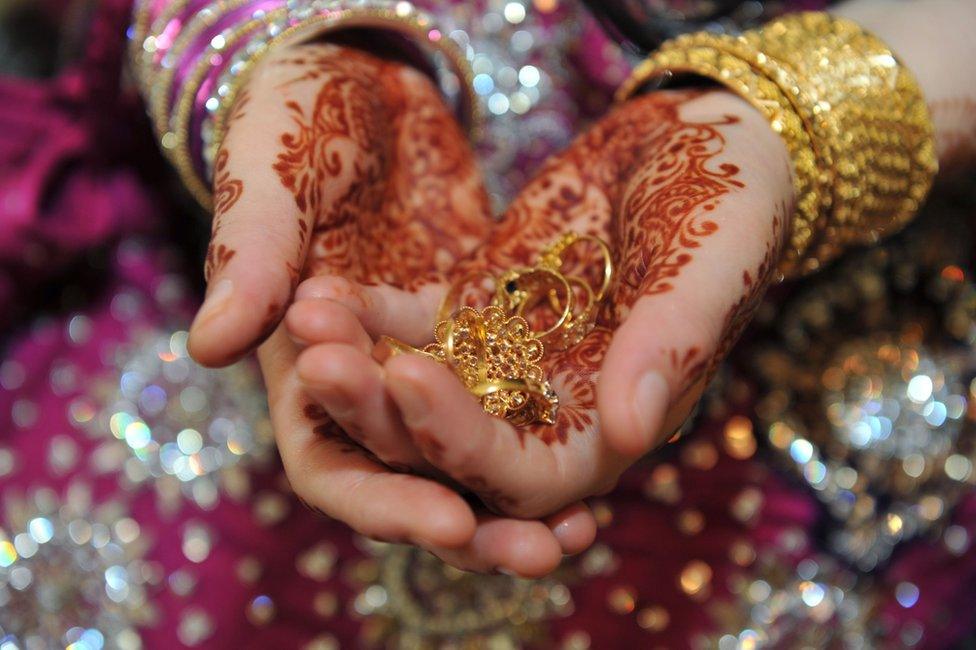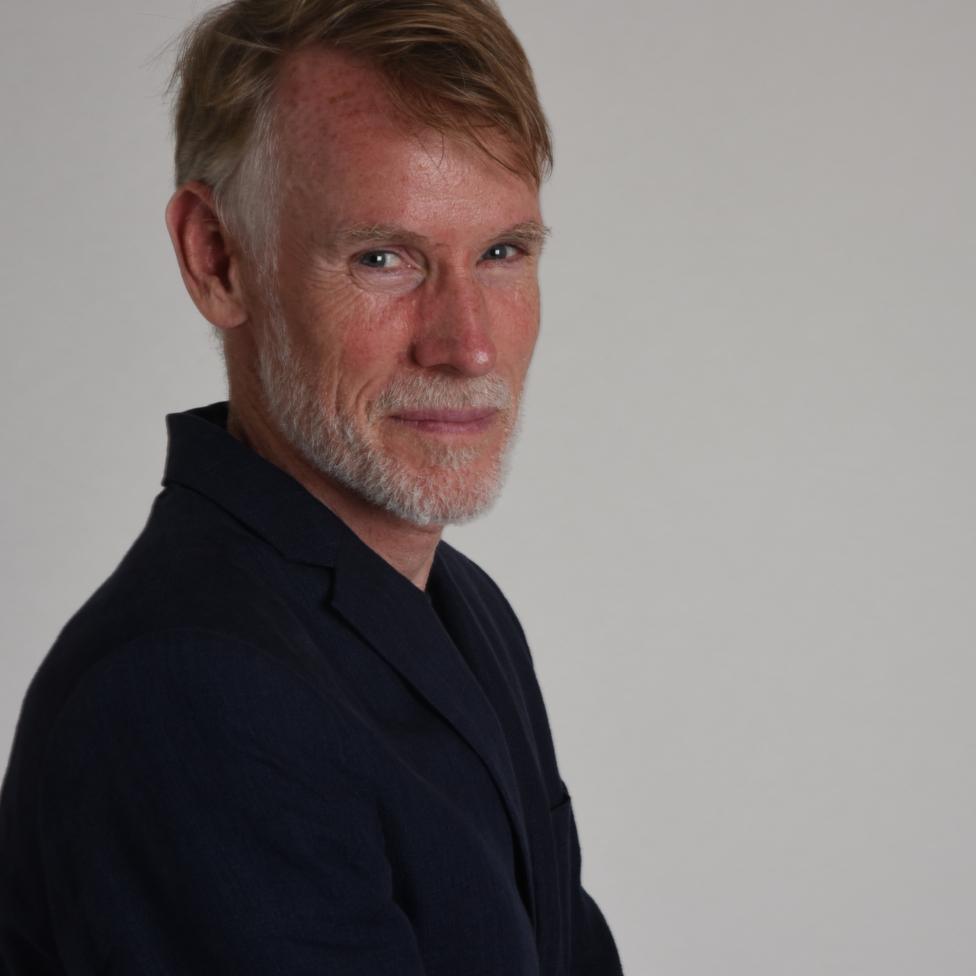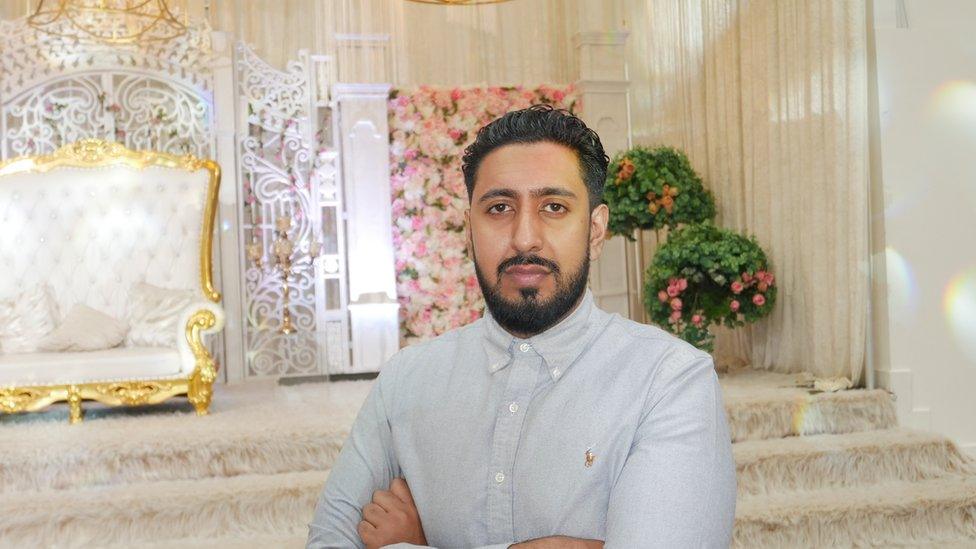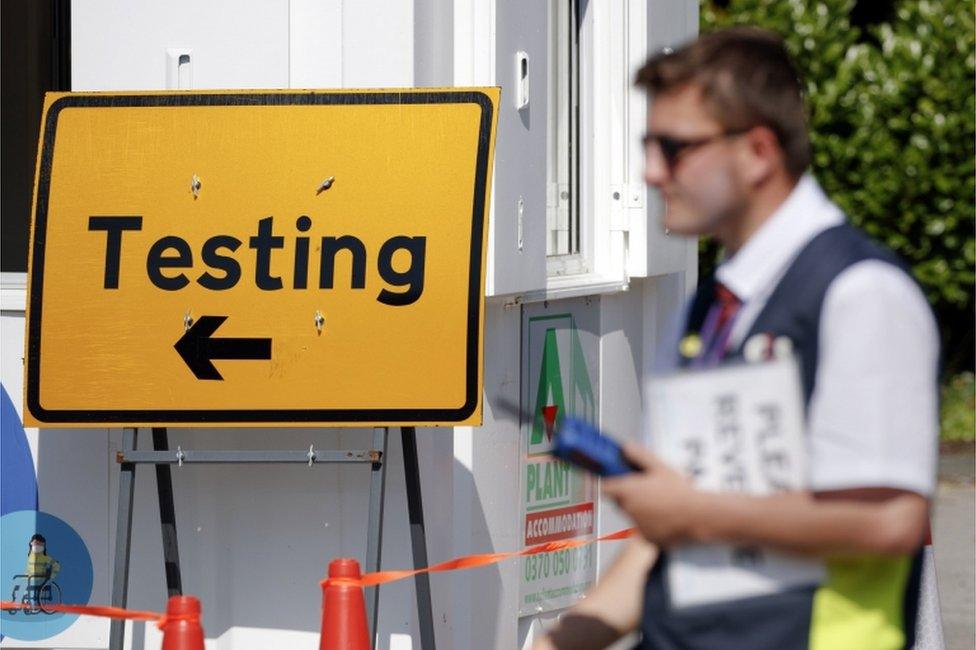Coronavirus doctor's diary: The 'moonshine weddings' breaking Bradford's lockdown
- Published

People are gathering in Bradford in ways that violate the local lockdown, for example by holding weddings in gardens and restaurants. Last month some even appear to have been held courtesy of the Eat Out to Help Out scheme. And the task of enforcing the lockdown just got tougher, argues Dr John Wright of Bradford Royal Infirmary.
The lifting of restrictions on social gatherings in some areas of Bradford but not others has led to relief for some residents and resentment from others.
The restrictions forbid people from different households from meeting in homes or gardens, or socialising together in pubs or restaurants, but it doesn't take much shoe-leather detective work on a sunny weekend to realise how little notice people are paying. Gardens blossom with boisterous gatherings, pubs and restaurants ooze chatter and cheer. Everywhere young people mingle with careless abandon.
The hospital has transformed from the busiest place in the city during the peak of the pandemic to become the quietest.
It was always going to be difficult to enforce these local restrictions, but the lifting of restrictions in nine of the 30 wards in Bradford on Wednesday makes the job much harder. How can you maintain adherence when on one side of the street you can have wild parties (no more than 30 people, of course) while on the opposite side of the street residents are told to live in isolated lockdown?
We have created a disparity that will sow confusion and scepticism and undermine our efforts to build a united front against Covid-19.

Bradford's lockdown
23 March The city goes into lockdown with the rest of the UK
1 June Non-essential shops reopen and some children return to school
4 July Cinemas, pubs and hairdressers reopen, and groups of up to 30 people are legally allowed to meet, as in rest of England
31 July New restrictions introduced - people from different households may not visit each other's homes or socialise in pubs or restaurants
2 September The new restrictions are lifted in nine of Bradford's 30 wards

Weddings are just one of many forms of gathering that have been taking place. They've been planned for months if not years, everything's been paid for, and the young couple may be impatient. But any event that brings two or more households together - as weddings inevitably do - is a violation of the rules in the areas where the local lockdown remains in force.
When Nadeem's son married on 7 August, the bride's family arranged for a marquee to be erected in their garden. The original plan had been for a huge wedding in a costly venue - the deposit alone had cost £1,000 - but the guest list had to be scaled down to 30 or 40 family members. It had already been delayed once, then the second lockdown came, and a further delay was a bitter pill to swallow. "It's hard for the youngsters, they just want to get on with their lives," Nadeem says.
My colleague, consultant anaesthetist Fozia Hayat, has witnessed gatherings like this one first hand.
"We had a huge wedding taking place in the houses behind us, with a marquee in the garden and fireworks, music and many, many guests," she says.
"I'm also getting calls from people who have been to secret weddings, so I know it's happening. It's a really difficult area, as weddings and funerals are a really important part of our culture. I understand them wanting to go ahead. These celebrations are a big part of life. But it goes against the regulations, because you have people mixing, and it's also putting older members of the community at risk."

Front line diary

Prof John Wright, a doctor and epidemiologist, is head of the Bradford Institute for Health Research, and a veteran of cholera, HIV and Ebola epidemics in sub-Saharan Africa. He is writing this diary for BBC News and recording from the hospital wards for BBC Radio.
Listen to the next episode of The NHS Front Line on BBC Sounds or the BBC World Service
Or read the previous online diary entry: The fake news about schools that's misleading parents

Bradford West MP Naz Shah says she has spoken with the city council and the police about ways to prevent these illegal wedding gatherings.
"It's not just in the gardens, there are restaurants that are being used for weddings. So people are bypassing the regulations and going into the restaurant, but their family are all there - all of them dining in," she says.
"If anyone came they'd say, 'We were all here by coincidence, it's not a planned reception.' But everyone knows what's going on. I've been to restaurants and seen the upstairs area being used for receptions."
She fears that there were cases last month when the taxpayer was even subsidising these events.
"We have the government Eat Out To Help Out promotion going on. I've heard that some of these wedding receptions are being held in restaurants covered by the scheme, which certainly will be helping out the families but it's not meant to be happening at all."

Ameer Hamza: The restriction on gatherings has led to "moonshine weddings"
Before the pandemic, hundreds of guests would often be invited to Asian weddings, and the fate of the venues that host these huge occasions also worries Naz Shah, who has written to the Chancellor seeking support to help them survive until the end of the lockdown.
Summer would normally have been peak season for weddings, explains Ameer Hamza of the HQ Banqueting Suite, which typically hosts weddings for 500 to 1,000 guests but hasn't had one since 8 March.
He's written to the city council explaining that it would be easy to hold a socially distanced wedding for a large group of people in his banqueting hall, if it was filled only to 30% or 40% of capacity. The closure of such venues, he argues, inevitably results in weddings without social distancing.
"What they've done here is - like in America in the 1920s during Prohibition, when no alcohol was allowed - they've started a moonshine culture. They've started moonshine weddings, because what you're getting is people who have no other option."
He points out that in Asian culture, and particularly Muslim culture, cohabitation before marriage is frowned upon; couples cannot start their lives together without weddings, so they will inevitably go ahead, one way or another.

Test and trace is slowly improving
West Yorkshire police say officers have been called out to a number of weddings, as well as to other gatherings that breach the Covid regulations across the social spectrum, including illegal raves, student house parties and football-related gatherings. "People need to avoid unlicensed events and large gatherings to stop the spread of the virus," a spokesman said.
The number of people with positive tests in Bradford remains stubbornly high, though they are mostly young people with mild or asymptomatic infection. The national NHS Test and Trace is slowly improving and new local systems are providing much needed community insight and coverage. The clear and consistent messages on social distancing, masks and hand washing seem to be working well for the most part, so we will have to keep our faith in the science of these core public health measures and their effectiveness in containing the virus - while striving to limit social gatherings such as weddings and parties, which have the potential to be super-spreading events.
One thing we cannot help is the change of season. Outdoor spaces seem reassuringly safe in preventing transmission of the SARS-CoV-2 virus, but as the autumn weather creeps up on us and our social gatherings move indoors, the risk of spread will rise.
Follow @docjohnwright, external and radio producer @SueM1tchell, external on Twitter